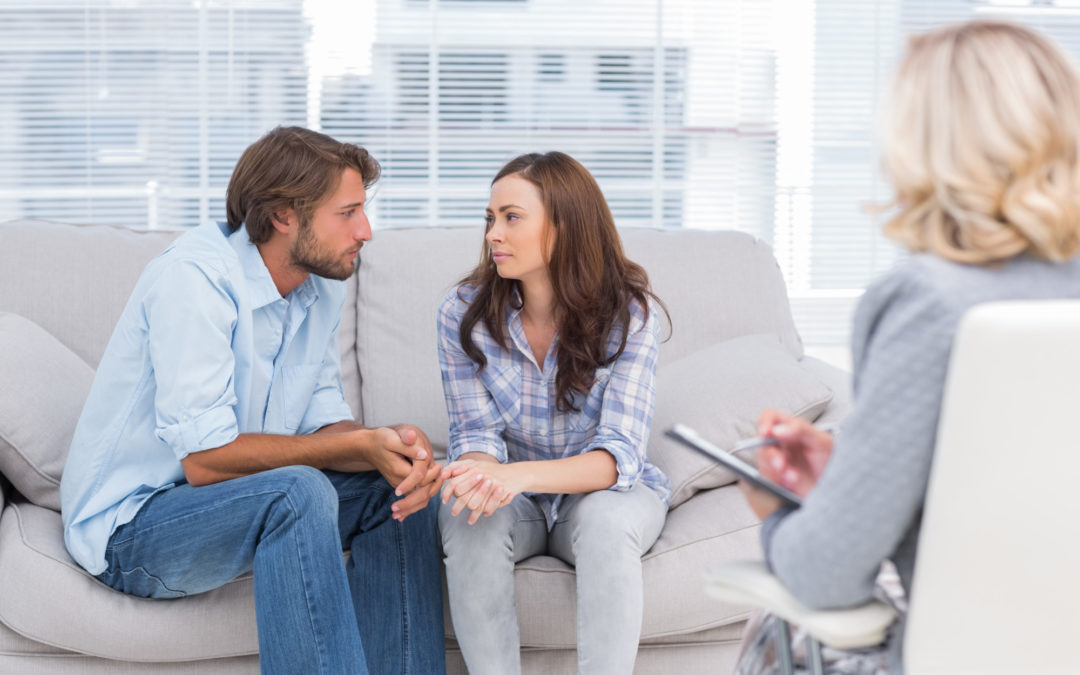All couples experience conflict, which is a normal and healthy part of intimate relationships. However, if you’ve found that you’re fighting frequently with your partner, your conflicts have become entrenched, or that you and your partner are becoming more distant, you might want to consider relationship counseling.
Couples counseling can assist you to understand your partner’s emotional needs, develop more effective communication skills, and become more aware of how you may be emotionally impacting your partner. While couples counseling can be helpful for many, in some situations, a therapist may recommend that partners seek individual counseling first. For example, if there is abuse and violence in the relationship, the counselor is likely to recommend that the partner(s) work individually on anger management before bringing them together as a couple.
Below are some suggestions to assist you to prepare for couples counseling sessions.
1. Sort Through Your Issues
When you attend your first session, the therapist will ask what issues brought you there. It’s helpful to be able to talk with your partner beforehand about what each person is concerned about. You may each want to jot down some notes to take with you to the session. This will help you to stay focused on the core issues that brought you to therapy.
If you and your partner have difficulty talking about the issues beforehand, you can note that as well. Let the therapist know that having emotionally difficult conversations is hard for your and your partner.
2. Know Your Goals
What are you hoping to achieve after your therapy session? Be specific. It’s not enough to say that you’re hoping to make the relationship work. Yes, but in what way? Do you want to be able to make meaningful conversations with your partner going forward? Do you want to spend more time with your partner? Do you want to learn how to more effectively handle disagreements with your partner?
If possible, discuss this with your partner. Discuss what you want out of the relationship counseling and try to come up with shared goals. Clarifying the reason you’re seeking therapy will help to motivate you, and help you find a therapist who is the right match.
3. Ensure You’re Both Ready
The therapy will only work if both of you are willing to give 100% to it. Couples therapy is about understnad your problems as a couple, making compromises, healing, and setting goals. Both you and your partner must be ready to start the process.
Often, the partner who initially suggested couples counseling is more motivated and excited about the prospect of therapy, while the other partner may be more reluctant. The therapist will explore the motivations of both partners in sessions, and attempt to help ease any concerns or fears about the process. However, even a skilled therapist will have difficulty helping a couple if one partner continues to be reluctant to engage in the process.
4. Clear Your Schedule
On the day of the appointment, make sure both you and your partner won’t have anything else to do right before or after the appointment. This makes sure you have enough time and space for yourself to prepare.
Counseling is an emotional process for both parties involved, so take time after the appointment to rest and reflect. What issues came up during the session? What was your emotional reaction? How did you express it? Did you listen with intent to understand your partner’s point of view? Are you willing to compromise with your partner?
5. Get Ready to Get Personal
Your therapist will not only look at your present behavior and relationship. They will also have to know your roots to help you overcome your current issues. In other words, you’ll have to share your personal history.
Your childhood and your past relationships all affect your current relationship. Knowing this history can help the counselor can better understand how you interact with others.
Were your parents divorced? How was their relationship? Did you receive abuse in your past relationships? All these can affect your emotional bonds, and can impact your behavior in the relationship, as well.
These can dictate your choice in a partner, how well your relationship goes, and even how it ends. The therapist will want to explore and understand these issues and how they have impacted your relationship.
6. Know That You Don’t Have to Be Selfless
The aim of couples counseling is to make the relationship satisfying and healthy for both partners. You may be challenged to re-examine some of your behaviors and assumptions. You may be asked to try new ways of relating to your partner that may feel uncomfortable at first. However, your partner will be going through the same process, and trying to understand how some of his/her behaviors are impacting you.
Your therapist will assist you to uncover the issues impacting your relationship negatively, and will work with each partner to develop relationship is satisfying for both partners.
Know It’s Okay to Be Nervous About Relationship Counseling
Feeling nervous? Don’t worry, it’s normal; make sure to let your partner know, too. Relationship counseling is a new experience, so it’s understandable to be anxious.
If you have more questions, we’ll be happy to quell your nervousness. Contact us today and allow us to help you.


